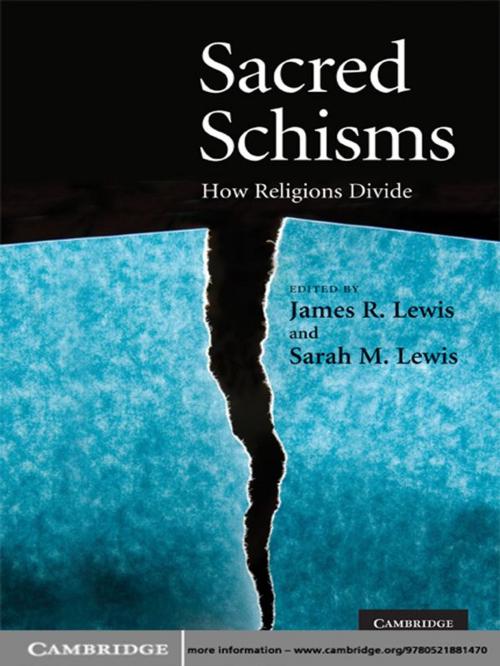Sacred Schisms
How Religions Divide
Nonfiction, Religion & Spirituality, Reference, Comparative Religion| Author: | ISBN: | 9780511698521 | |
| Publisher: | Cambridge University Press | Publication: | May 14, 2009 |
| Imprint: | Cambridge University Press | Language: | English |
| Author: | |
| ISBN: | 9780511698521 |
| Publisher: | Cambridge University Press |
| Publication: | May 14, 2009 |
| Imprint: | Cambridge University Press |
| Language: | English |
Schism (from the Greek 'to split') refers to a group that breaks away from another, usually larger organisation and forms a new organisation. Though the term is typically confined to religious schisms, it can be extended to other kinds of breakaway groups. Because schisms emerge out of controversies, the term has negative connotations. Though they are an important component of many analyses, schisms in general have not been subjected to systematic analysis. This volume provides the first book-length study of religious schisms as a general phenomenon. Some chapters examine specific case studies while others provide surveys of the history of schisms within larger religious traditions, such as Islam and Buddhism. Other chapters are more theoretically focused. Examples are drawn from a wide variety of different traditions and geographical areas, from early Mediterranean Christianity to modern Japanese New Religions, and from the Jehovah's Witnesses to Neo-Pagans.
Schism (from the Greek 'to split') refers to a group that breaks away from another, usually larger organisation and forms a new organisation. Though the term is typically confined to religious schisms, it can be extended to other kinds of breakaway groups. Because schisms emerge out of controversies, the term has negative connotations. Though they are an important component of many analyses, schisms in general have not been subjected to systematic analysis. This volume provides the first book-length study of religious schisms as a general phenomenon. Some chapters examine specific case studies while others provide surveys of the history of schisms within larger religious traditions, such as Islam and Buddhism. Other chapters are more theoretically focused. Examples are drawn from a wide variety of different traditions and geographical areas, from early Mediterranean Christianity to modern Japanese New Religions, and from the Jehovah's Witnesses to Neo-Pagans.















